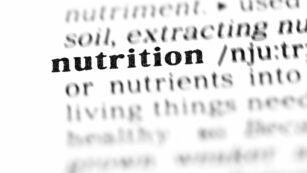In today’s fast-paced world, maintaining a healthy lifestyle can be a challenge. With convenience foods at every corner and busy schedules that leave little time for exercise, finding reliable information on nutrition is more crucial than ever. That’s where the concept of a Nutrition for Healthy Living PDF comes into play. This comprehensive guide serves as a beacon for those looking to make informed choices about their diet and overall health.
Nutrition For Healthy Living PDF
 Understanding the importance of macronutrients is crucial for optimal health, as highlighted in the Nutrition for Healthy Living PDF. Macronutrients include carbohydrates, proteins, and fats, each serving unique roles in the body. Carbohydrates, the primary energy source, fuel daily activities and brain function. Proteins, vital for tissue repair and growth, support muscle development and immune function. Fats, often misunderstood, are essential for absorbing vitamins and providing energy.
Understanding the importance of macronutrients is crucial for optimal health, as highlighted in the Nutrition for Healthy Living PDF. Macronutrients include carbohydrates, proteins, and fats, each serving unique roles in the body. Carbohydrates, the primary energy source, fuel daily activities and brain function. Proteins, vital for tissue repair and growth, support muscle development and immune function. Fats, often misunderstood, are essential for absorbing vitamins and providing energy.
The guide demystifies nutritional science, explaining how balanced intake of these macronutrients contributes to sustained energy, efficient weight management, and overall well-being. It underscores the necessity of making informed food choices to enhance health outcomes.
Analyzing Nutrition for Healthy Living PDF
 Building on the foundation of understanding macronutrients and their significance in fostering a balanced diet, the Nutrition for Healthy Living PDF goes further by providing actionable advice to overcome common dietary challenges. It outlines practical strategies for integrating nutrient-rich foods into meals, even with a hectic schedule.
Building on the foundation of understanding macronutrients and their significance in fostering a balanced diet, the Nutrition for Healthy Living PDF goes further by providing actionable advice to overcome common dietary challenges. It outlines practical strategies for integrating nutrient-rich foods into meals, even with a hectic schedule.
The guide showcases methods to make smarter food choices when dining out or opting for convenience foods, ensuring readers can maintain a healthy eating pattern regardless of their lifestyle. Importantly, the PDF emphasizes portion control and the benefits of regular hydration, underscoring their roles in achieving optimal health. By presenting this information in a structured and accessible format, the guide empowers individuals to apply these nutritional principles effectively, paving the way for improved health outcomes and sustainable lifestyle changes.
The Impact of Nutrition on Wellness
 Following the exploration of balancing macronutrients and making healthier meal choices, the Nutrition for Healthy Living PDF dives into the direct effects of nutrition on wellness. It underscores the role of a nutritious diet in enhancing mental clarity, emotional stability, and physical vigor. Adequately fueling the body with vitamins, minerals, and antioxidants found in whole foods can increase energy levels, improve mood, and strengthen the immune system.
Following the exploration of balancing macronutrients and making healthier meal choices, the Nutrition for Healthy Living PDF dives into the direct effects of nutrition on wellness. It underscores the role of a nutritious diet in enhancing mental clarity, emotional stability, and physical vigor. Adequately fueling the body with vitamins, minerals, and antioxidants found in whole foods can increase energy levels, improve mood, and strengthen the immune system.
For instance, omega-3 fatty acids, prevalent in fish and flaxseeds, are known to boost cognitive function and support heart health. Similarly, fiber-rich foods like fruits, vegetables, and whole grains can aid in digestion and prevent chronic diseases. The guide emphasizes that consistent intake of these nutrient-dense foods, coupled with adequate hydration, paves the way for a healthy, dynamic lifestyle. Through practical advice, it prompts individuals to make informed dietary choices that foster long-term wellness and resilience against illnesses.
Diet Considerations for Different Life Stages
Following the guide’s emphasis on nutrient-rich foods and their myriad benefits, it’s crucial to understand that dietary needs evolve through different life stages. Each stage carries unique nutritional requirements essential for optimal health and development.
Infants and Toddlers
For infants and toddlers, breast milk or formula provides essential nutrients for brain development and growth. Introducing solid foods at about six months should focus on iron-rich options, such as fortified cereals and pureed meats, alongside fruits and vegetables to ensure a balanced diet.
Children and Adolescents
During childhood and adolescence, calcium and vitamin D are vital for bone development. Incorporating dairy products, leafy greens, and fortified foods helps support healthy bones. Additionally, lean proteins, fruits, and vegetables support overall growth and cognitive development.
Adults
Adults require a balanced diet that includes a variety of fruits, vegetables, whole grains, lean proteins, and healthy fats to maintain energy levels and prevent chronic diseases. Adequate fiber intake is also crucial for digestive health.
Seniors
Seniors’ diets should focus on nutrient-dense foods to combat age-related muscle loss and bone density decrease. Calcium, vitamin D, and protein become increasingly important. Reducing sodium intake and ensuring adequate hydration are also essential for maintaining health in later years.
By tailoring nutritional intake to the specific needs of each life stage, individuals can enhance their wellness and mitigate health risks associated with dietary deficiencies.

